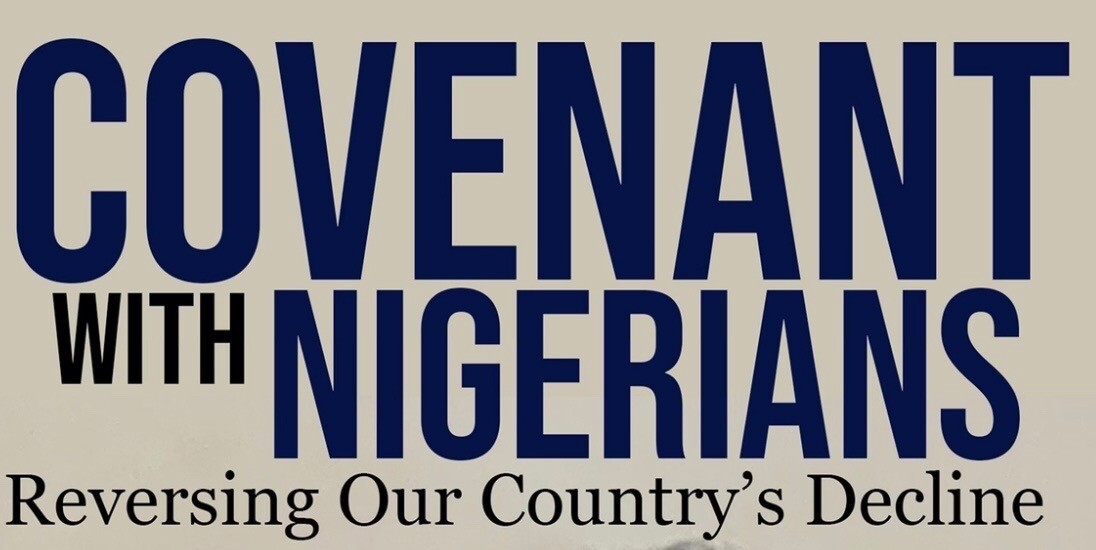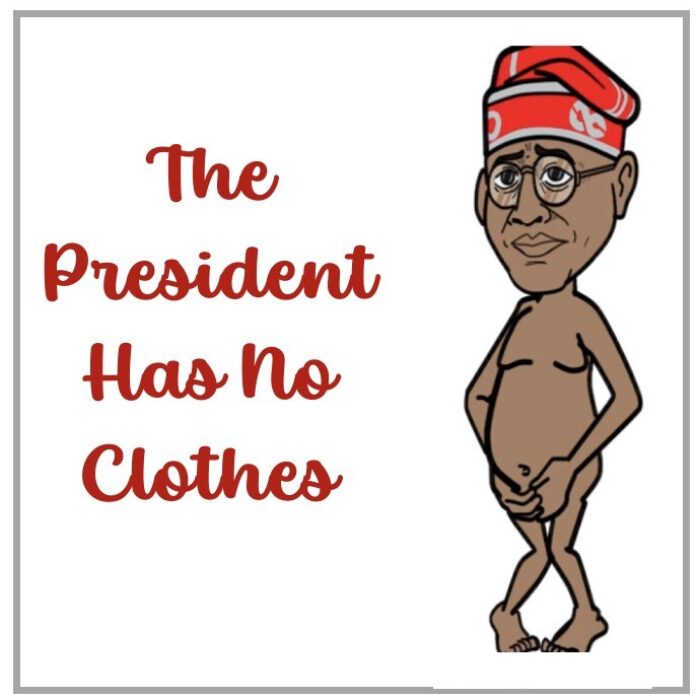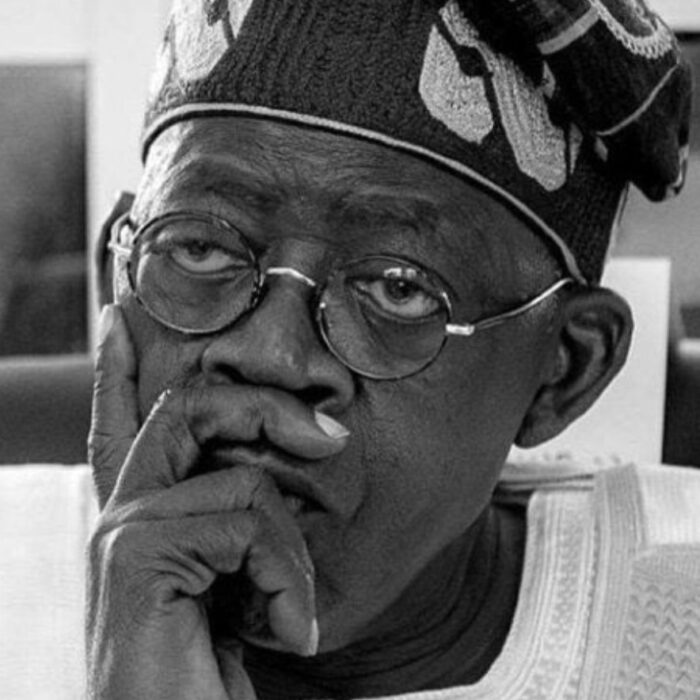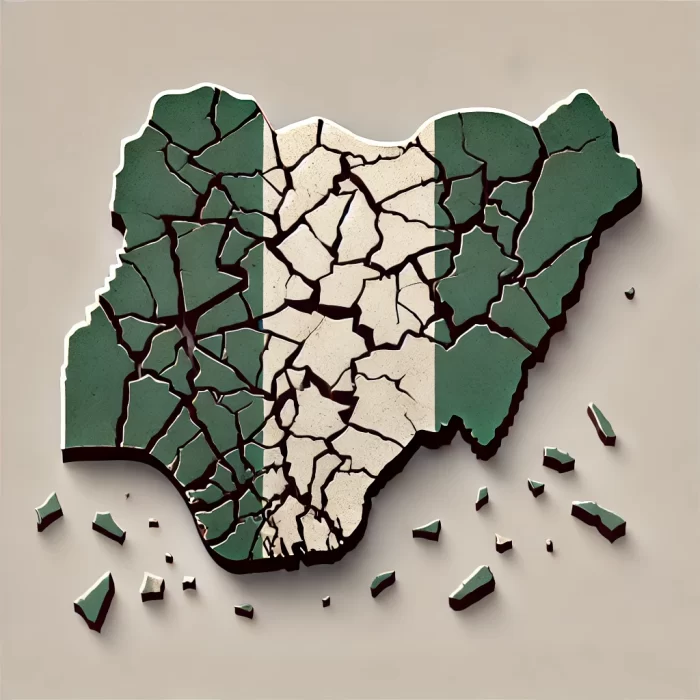By Nnaoke Ufere, PhD
Recently, I was invited to a private event in Washington, D.C., to present my new book, “Covenant With Nigerians: Reversing Our Country’s Decline.” The audience was a distinguished mix of political leaders, members of Congress, diplomats, business executives, lobbyists, academics, media professionals, and publishers. The presentation ignited passionate discussions, particularly during the Q&A session, where one question stood out, reverberating through the room:
“Why has Nigeria, with all its natural wealth and human potential, continued to struggle while other equally endowed nations have advanced and prospered?”
The room was charged with curiosity, frustration, and disbelief. How could a nation so richly endowed with natural resources, blessed with a youthful and talented population, and strategically located on the global map, stagnate—or worse, regress—for over six decades since independence? How could a country with such immense promise and a diaspora of highly skilled professionals devolve into a nation crippled by poverty, injustice, corruption, insecurity, and chronic underdevelopment?
I could see the disbelief etched on their faces as I began to respond.
“Nigeria’s leaders have consistently failed to prioritize the needs of the people,” I said. “Instead, they have enriched themselves at the expense of national progress. This failure isn’t accidental; it’s a deliberate betrayal of their mandate—a leadership driven by greed and impunity, where the collective good is sacrificed for personal gain. Corruption has become institutionalized, incompetence normalized, and the public good abandoned on the altar of self-interest.“
I continued, “Time and again, opportunities to lift Nigeria have been squandered. Oil wealth, which should have been a blessing, has instead turned into a curse, poisoned by corruption and mismanagement. Funds meant for infrastructure, education, and healthcare are siphoned off into private accounts, leaving our roads in disrepair, schools overcrowded, and hospitals unequipped.“
“For instance”, I added, “over the past six decades, around 56,000 fully funded projects worth over $98 billion have been abandoned, according to the Nigerian Institute of Quantity Surveyors—a euphemism for embezzled funds. While other nations use resources to build prosperity, Nigeria accumulates debt not for development but to sustain corruption and unsustainable consumption, deepening intergenerational debt.”
A Senator’s Challenge
At this point, a former senator in the audience leaned forward and asked pointedly:
“Do Nigeria’s leaders have no shame? How can those in power justify their extravagance while millions of citizens languish in abject poverty? How can they demand loyalty and patriotism when their actions so blatantly betray the public good? And how can they stand idly by as the nation falls further behind and still dare to claim the mantle of leadership?”
The room fell silent as the senator’s words lingered. I paused briefly before responding.
“The answer lies in the entrenched culture of impunity, greed, and lack of accountability that has defined Nigeria’s leadership for decades,” I explained. “Leaders justify their extravagance because the system enables and rewards it. There are no meaningful consequences for mismanaging public funds, looting the treasury, or living lavishly on stolen money while millions suffer. In a society where wealth—regardless of how it is acquired—is celebrated and political power equates to unchecked privilege, shame becomes irrelevant.
“These leaders demand loyalty and patriotism because they operate in a bubble of entitlement and arrogance, assuming their authority guarantees unquestioning allegiance,” I continued. “Loyalty is not earned through service but coerced through bribery, tribalism, religiosity, propaganda, and the suppression of dissent. They manipulate ethnic and religious divisions to divide and control the populace. In their hands, patriotism becomes a weapon to silence critics and deflect attention from their failures.”
As for their audacity to claim leadership while the nation falls behind, I added:
“This reflects a fundamental disconnect from the responsibilities of governance. For these individuals, leadership is not about solving problems and delivering results or nation-building—it is about personal gain, power consolidation, and preserving the status quo. They are not leaders in the true sense of the word; they are opportunists occupying leadership positions. Their survival is sustained by weak institutions, a politically disengaged populace, and a system designed to prioritize self-interest over national progress.”
A jurist in the audience followed up with a question laced with irony:
“Where is the judiciary in all this? Why aren’t these individuals you speak of prosecuted, removed from office and sent to prison?”
I paused, collecting my thoughts before responding, though the hint of sarcasm in my voice betrayed my frustration as I began to respond:
“The judiciary? In theory, it should be the guardian of justice, the last hope for the oppressed, and the enforcer of accountability. In reality, it has too often been a silent bystander—or worse, an accomplice. How can justice prevail when the judiciary itself is riddled with corruption and undue influence? Judges, prosecutors, lawyers, and court administrators can be bought by the highest bidder. Courtrooms have become marketplaces where verdicts are sold to the wealthy and powerful, leaving the poor and powerless without recourse.
“This judicial rot shields corrupt leaders from prosecution, perpetuating a cycle of impunity. Those in power know they will face no real consequences, so they continue to loot the nation with reckless abandon. The collapse of the rule of law has left Nigeria in a state where governance is a façade, and accountability is a myth.
“When the judiciary fails and elections are corrupted, faith in governance gives way to anger and despair. Breaking this cycle demands bold leadership dedicated to justice, transparency, and electoral integrity. Nigerians deserve a president who enforces the law, empowers the people, and ensures every voice and vote counts—essential steps to reclaiming democracy and building a better Nigeria.”
A member of Congress raised his hand and asked, his tone laden with resignation:
“With a rot this systemic, can one man even make a difference? The status quo will fight back with a vengeance. Are there any case examples of leaders who have successfully overcome such entrenched corruption and dysfunction to transform their nations?”
The question hung in the air, and I could sense the skepticism in the room. It was a valid concern—how does one individual, no matter how determined, confront an entire system designed to resist change and protect its beneficiaries? I took a moment before responding.
“Yes, it is true that the status quo will fight back, often with unimaginable ferocity,” I began. “History offers examples of transformative leadership that rebuilt broken nations. Lee Kuan Yew turned a corrupt, divided Singapore into a global success through strict anti-corruption measures, meritocracy, and economic development.
“Closer to home, Paul Kagame led Rwanda from the brink of collapse after the 1994 genocide to stability and growth with efficient governance and zero tolerance for corruption.
“Vietnam, emerging from war, implemented Đổi Mới reforms in the 1980s, combining disciplined leadership and economic planning to become a fast-growing economy, lifting millions from poverty.
Similarly, Brazil under Lula da Silva, despite controversies, reduced poverty, expanded education, and improved infrastructure, lifting millions through initiatives like Bolsa Família.”
I paused, letting the weight of these examples settle. “The common thread? These leaders united their citizens around a shared purpose, built lasting institutions, and proved that the right leadership can dismantle dysfunction and inspire collective action.”
The congressman who had initially asked the question leaned back in his chair, nodding thoughtfully. “So, it’s not just about one man—it’s about building a system that works, inspiring the people, and fostering a culture of accountability.
“Exactly,” I replied. “Change begins with leadership but must evolve into a system that functions regardless of who is in charge. It’s a marathon, not a sprint. And while the status quo may resist, history has shown that determined leadership, combined with citizen engagement and institution-building, can achieve the unimaginable.”
A reporter from a national news outlet interjected:
“But what if the people themselves have lost faith in their leaders and no longer believe change is possible? How do you rebuild that trust?”
I responded, “Rebuilding trust starts with courageous leadership—leaders who are transparent, accountable, and genuinely committed to the people. It also requires a clear and compelling vision of what is possible. People need to see tangible results, no matter how small, to rekindle their belief in the system. Leadership is about setting an example and proving, through action and results, that change is not only possible but inevitable when there is collective will.”
I then said, “Nigerians may be beaten down, and they may have lost hope in their leaders. Yet, from my interactions with them, I am convinced that beneath the layers of disillusionment lies an unyielding spirit and remarkable resilience. They carry a deep well of talent, creativity, and an undeniable yearning for a better future. With the right leadership and opportunities, I believe this nation can rise above its challenges and finally unleash the greatness that has been stifled for far too long. I firmly believe in that.”
A professor from one of the universities in DC asked, with a tone signaling both curiosity and skepticism:
“What do you think of President Tinubu’s performance to date? While 2027 is still a couple of years away, what is the likelihood that, if he runs again with the advantages of incumbency, he could be defeated?”
“Well, I hadn’t planned to discuss President Tinubu in this forum, but I’ll attempt to address your question, mindful of the fact that the office of the President in Nigeria is a critical institution that must be evaluated with care.”
With that as context, I continued:
“Regarding President Tinubu’s performance, the evidence speaks for itself—whether you read the reports, hear the testimonies, or, if you’re in Nigeria, experience it firsthand. That said, every performance must be referenced to a baseline. President Tinubu inherited an economy in steep decline.
“His predecessor from the same political party, former President Buhari, left behind a legacy of unaddressed problems. Yet, Tinubu campaigned as the messiah who would singlehandedly resolve Nigeria’s deep-rooted problems. He claimed to know the issues; he ran on the promise to fix them. Unfortunately, he has overpromised and underdelivered.
“As we now know, he wasn’t ready. He wasn’t prepared. His fatal flaw is surrounding himself with loyal “yes men,” with his core team predominantly from his tribal circle and from his time as Lagos Governor, rather than assembling a team of competent, skilled, and experienced individuals capable of addressing the nation’s challenges. He was set up for failure from day one.
“Tinubu’s first major policy decisions—the removal of the fuel subsidy and the devaluation of the Naira—were avoidable disasters. During his campaign, Tinubu admitted the subsidy program was riddled with corruption, with advisers estimating 60% of the $10 billion allocated annually was stolen. Instead of tackling corruption to recover $6 billion while preserving $4 billion for a fuel subsidy with significant social and economic benefits, he abruptly removed the subsidy, inflicting harm on both the economy and the people.
“The timing was equally catastrophic. With a weak economy, high inflation, and struggling citizens, he scrapped the subsidy without safeguards or remedial policies, triggering an economic shock. Worse, he acted knowing the Dangote refinery and others were months from starting operations, which could have mitigated the impact. The sad irony is that fuel remains subsidized, and corruption within the fuel sector persists unabated.
“He compounded the crisis by deeply devaluing the Naira in an import-dependent economy with limited foreign reserves. The results are clear: surging inflation, widespread hunger, soaring unemployment, over 2,000 company closures, and foreign firms fleeing. Nigeria teeters on bankruptcy, relying on oil-backed foreign loans to survive and limb along.”
I continued:
“Tinubu’s leadership has worsened the problems he was elected to solve. While incumbency offers advantages, anger, hunger, and disillusionment among voters will bring intense scrutiny in 2027, if he ventures to run again. His relentless obstinacy to change direction signals that meaningful progress is unlikely, and the situation may only worsen.
“I believe Nigerians are ready for a prepared, decisive leader driven by service, not personal ambition or party loyalty. This leader is neither Tinubu nor the entrenched career politicians who have drained Nigeria’s potential. The future choice is clear: the failed politics of the past or the transformative leadership Nigeria desperately needs.“
The final question came from a fellow Nigerian, a business executive in an advertising company. It was both a statement and a question. He pointed out that the lack of a moral compass among Nigerian politicians was a major reason the nation has declined since independence. Then he asked: ‘Dr. Ufere, what is your view on moral leadership?’
I began, “It’s tempting to use a broad brush to paint everyone in Nigeria as corrupt, given the sheer pervasiveness of it. But let me make one thing clear—there are decent, honest men and women in Nigeria. However, we must isolate a particularly notorious group: politicians.
“Here’s the uncomfortable truth: within this class, it is impossible to find an honest and decent person. Majority of this class are products of a morally bankrupt political ecosystem that has failed Nigeria and its citizens for decades. These politicians are lifetime members of a cesspool of corruption—a political class that has bled Nigeria dry. They are emblematic of a system where malfeasance is not an anomaly but a best practice.
“There is no angel in Sodom and Gomorrah, just as there is no truly clean politician in Nigeria. I firmly believe that no one from the current political class is capable of leading the country out of this abyss. Most are compromised, conflicted, and ensnared in a system that rewards self-interest while crushing integrity. Their businesses, deals, and livelihoods are deeply entwined with the corrupt machinery of quid pro quo—you scratch my back, I scratch yours. As for the rare good men and women, their voices are stifled into silence.
“What Nigerians are yearning for is something entirely different: an ethical, smart, courageous, pragmatic, and experienced problem solver. A leader who stands outside the rot of the establishment and offers real solutions to the nation’s deepest challenges—a non-politician who embodies moral leadership.
“I hope that in 2027, Nigerians will resist the lure of vote buyers and refuse to mortgage their future and that of their children for a bushel of rice or a few thousand Naira. We cannot afford to entrust our future to yet another corrupt politician. The stakes are too high, and the cost of failure is one we can no longer bear.”
I concluded the session with this comment: “Therefore, the fight for Nigeria’s future is a clash of paradigms—a quest for innovative visionaries equipped with the courage to solve problems pragmatically and effectively. It demands a new kind of leadership, one that transcends the self-serving instincts of professional politicians, many of whom are already positioning themselves for another run in 2027. These individuals are profoundly unqualified to meet the moment.
Nigeria needs leaders who embody integrity, competence, and a relentless commitment to the common good. The time has come to reject the recycled failures of the past and embrace a future shaped by bold, ethical, and transformative leadership. The survival of the nation depends on it.”
The room fell into a profound silence, heavy with the weight of the truth just spoken. Slowly, heads began to nod in agreement, faint smiles of recognition spreading across the audience. And then, the silence broke into a thunderous standing ovation.
The session ended with a sense of cautious optimism. The challenges were daunting, but the examples of transformative leadership from Singapore, Rwanda, Vietnam, Brazil, and India offered a glimmer of hope that even the deepest rot can be overcome with vision, courage, competence and collective effort.





This is nothing short of a tour de force! You’ve managed to distill the frustrations, hopes, and aspirations of a nation into a compelling narrative that hits like a jolt of caffeine to the conscience. With thought-provoking points and real solutions to our nation’s most stubborn challenges, this article feels like a masterclass in moral leadership—something our nation so desperately craves.
Your vision of rejecting recycled failures and embracing transformative leadership is pure gold, and your appeal to integrity and competence is the wake-up call we need. The way you painted a glimmer of hope, drawing from inspiring examples like Singapore and Rwanda, was nothing short of poetic. I imagine the room’s standing ovation wasn’t just for your words but for the truth they carried.
Please pursue this vision to its full realization. Who knows? You might be the catalyst for a transformative shift in our nation’s trajectory. After all, history remembers and honors those who dare to champion the common good with both words and actions. Your tenacity continues to inspire us all.